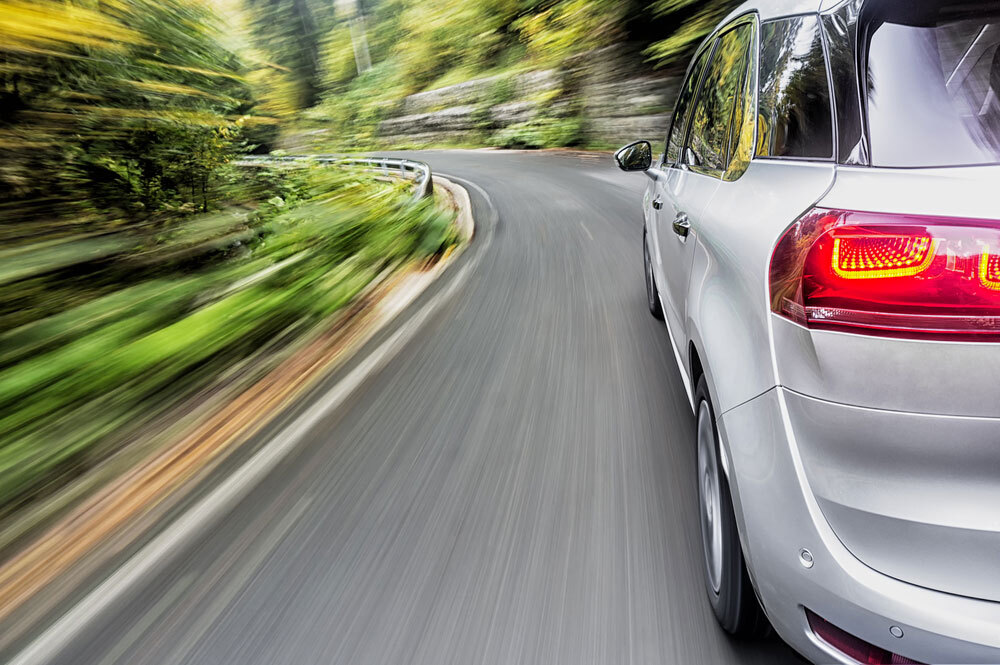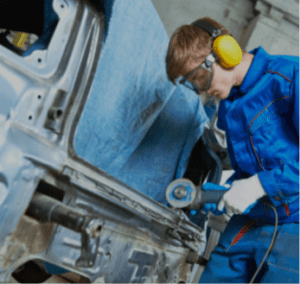Few things can be more frustrating for a driver than the unsettling sensation of their car jerking or bucking during acceleration. This not only compromises the driving experience but can also be indicative of underlying issues with the vehicle. Below, we’ll explore the top 10 reasons why your car may jerk when accelerating, addressing common culprits from dirty fuel injectors to blocked catalytic converters. Let’s go ahead and look at these issues, plus discuss the symptoms, causes, and potential solutions.
1. Dirty Fuel Injectors:
Fuel injectors play a critical role in the combustion process by spraying fuel into the engine cylinders. Over time, these injectors can become clogged with debris, affecting the fuel spray pattern. This irregular fuel distribution can lead to misfires and cause the car to jerk during acceleration.
Symptoms: Rough idling, decreased fuel efficiency, and jerking during acceleration.
Solution: Fuel injector cleaning or replacement, using fuel system cleaners regularly.
2. Dirty Air Filters:
Air filters prevent contaminants from entering the engine, ensuring a clean air supply for combustion. When air filters become clogged with dirt and debris, they restrict airflow, affecting the air-fuel mixture. This imbalance can result in poor combustion and jerking during acceleration.
Symptoms: Reduced engine performance, decreased fuel efficiency, and jerking during acceleration.
Solution: Regular air filter replacement, especially in dusty or polluted environments.
3. Worn Out Spark Plugs:
Spark plugs ignite the air-fuel mixture in the engine cylinders, facilitating combustion. Over time, spark plugs can wear out, leading to inconsistent firing and misfires. This can manifest as jerking or bucking during acceleration.
Symptoms: Poor engine performance, rough idling, and jerking during acceleration.
Solution: Regular spark plug inspection and replacement according to the manufacturer’s recommendations.
4. Damaged Cylinders:
Cylinder damage, such as scoring or excessive wear, can disrupt the combustion process. Uneven pressure within the cylinders can result in jerking or hesitation when accelerating.
Symptoms: Loss of power, rough running engine, and jerking during acceleration.
Solution: Professional inspection and potential engine repair, including cylinder replacement if necessary.
5. Damaged Throttle Cables:
Throttle cables, also known as acceleration cables, control the opening and closing of the throttle valve. If these cables are damaged or frayed, they may not respond smoothly to driver input, causing the car to jerk during acceleration.
Symptoms: Unresponsive throttle, poor acceleration, and jerking during acceleration.
Solution: Inspection and replacement of damaged acceleration cables.
6. Dirty or Faulty EGR Valve:
The Exhaust Gas Recirculation (EGR) valve recirculates a portion of exhaust gases back into the combustion chamber to reduce emissions. A dirty or faulty EGR valve can disrupt the air-fuel mixture, leading to poor combustion and jerking during acceleration.
Symptoms: Rough idling, decreased fuel efficiency, and jerking during acceleration.
Solution: Cleaning or replacement of the EGR valve.
7. Damaged Gas Lines:
Leaking or damaged gas lines can compromise fuel delivery to the engine, leading to fuel system irregularities. This can result in poor combustion and jerking during acceleration.
Symptoms: Smell of gasoline, poor fuel efficiency, and jerking during acceleration.
Solution: Inspection and repair or replacement of damaged gas lines.
8. Defective Carburetors:
While newer vehicles typically use fuel injection systems, older cars may rely on carburetors to mix air and fuel. If a carburetor is defective or improperly tuned, it can disrupt the air-fuel mixture and cause jerking during acceleration.
Symptoms: Poor fuel efficiency, rough idling, and jerking during acceleration.
Solution: Professional carburetor inspection, tuning, or replacement if necessary.
9. Moisture on the Distributor Cap:
The distributor cap directs electrical current to the spark plugs. Moisture accumulation on the cap can interfere with proper electrical conductivity, leading to misfires and jerking during acceleration.
Symptoms: Poor engine performance, difficulty starting, and jerking during acceleration.
Solution: Drying the distributor cap and ensuring proper sealing.
10. Blocked Catalytic Converters:
Catalytic converters help reduce emissions by converting harmful gases into less harmful substances. If a catalytic converter becomes blocked or fails, it can impede exhaust flow, leading to poor engine performance and jerking during acceleration.
Symptoms: Reduced power, poor fuel efficiency, and jerking during acceleration.
Solution: Professional inspection and potential replacement of the catalytic converter.
What Is The Best Way To Diagnose If Your Car Jumps While Accelerating?
Diagnosing the cause of jerking or car chugging while accelerating in your car can be a systematic process that involves checking various components related to the engine, fuel system, and ignition system. Here’s a step-by-step guide to help you diagnose the issue:
1. Check for Error Codes:
Modern vehicles are equipped with an On-Board Diagnostics II (OBD-II) system that monitors various components and systems. Using an OBD-II scanner, you can retrieve error codes that might provide insight into the issue. Check for any stored trouble codes and note them down for further investigation.
2. Inspect the Dashboard Warning Lights:
Pay attention to any warning lights on the dashboard. Some issues may trigger warning lights such as the Check Engine Light, ABS Light, or others. These lights can provide clues about the system or component that requires attention.
3. Examine Fuel System Components:
- Fuel Injectors: Inspect the fuel injectors for any signs of clogging or malfunction. Clean or replace them if necessary.
- Fuel Filters: Check the fuel filters for dirt or blockages. Replace them if they are excessively dirty.
- Fuel Pressure: Measure the fuel pressure using a fuel pressure gauge. Low fuel pressure can contribute to acceleration issues.
4. Evaluate the Ignition System:
- Spark Plugs: Inspect the spark plugs for wear, fouling, or damage. Replace them if needed.
- Ignition Coils: Test the ignition coils for proper function. Faulty coils can lead to misfires and jerking.
- Spark Plug Wires: Check the spark plug wires for damage or wear. Replace them if necessary.
5. Inspect the Air Intake System:
- Air Filters: Examine the air filter for dirt or clogs. Replace it if it’s dirty.
- Mass Airflow Sensor (MAF): Clean the MAF sensor using MAF cleaner to ensure accurate readings.
6. Check the Exhaust System:
- Catalytic Converter: Inspect the catalytic converter for signs of damage or blockage. A clogged converter can cause poor acceleration.
7. Evaluate the Throttle and Acceleration Components:
- Throttle Position Sensor (TPS): Test the TPS for proper function. A malfunctioning TPS can affect throttle response.
- Acceleration Cables: Inspect acceleration cables for damage or fraying. Replace them if needed.
8. Verify Transmission Health:
- Transmission Fluid: Check the transmission fluid level and condition. Low or contaminated fluid can impact transmission performance.
- Transmission Mounts: Inspect transmission mounts for wear or damage. Worn mounts can cause abnormal movements during acceleration.
9. Conduct a Road Test:
- Pay Attention to Driving Conditions: Note whether the jerking occurs during specific driving conditions, such as at low speeds, high speeds, or during gear shifts.
- Listen for Unusual Sounds: Pay attention to any unusual noises accompanying the jerking, as they can provide additional clues.
10. Seek Professional Assistance:
- Diagnostic Tools: If you are unable to identify the issue or lack the necessary tools, consider taking your vehicle to a professional mechanic. They can use advanced diagnostic tools to analyze the vehicle’s computer data and pinpoint the problem accurately.
- Professional Inspection: A qualified mechanic can perform a comprehensive inspection, including a test drive, to identify and address the underlying cause of the jerking.
Approach the diagnosis systematically and address issues promptly to prevent further damage. If you’re uncertain about any aspect of the diagnosis, seeking professional assistance is advisable. Professional mechanics have the expertise and tools to perform in-depth diagnostics and ensure accurate repairs.
If Your Car Stutters When Accelerating
If your car lurches when accelerating, it can be frustrating. Regular maintenance, prompt inspections, and addressing issues promptly can help keep your car running smoothly. If you’re unsure about the cause of the jerking or if the problem persists, consulting with a qualified mechanic for a thorough diagnosis is recommended. By taking proactive steps and staying attuned to your vehicle’s performance, you can ensure a smoother and more enjoyable driving experience.
If you’re ever in an accident and need auto body or collision repair in the future, be sure to contact us or fill out our mobile estimate form.


